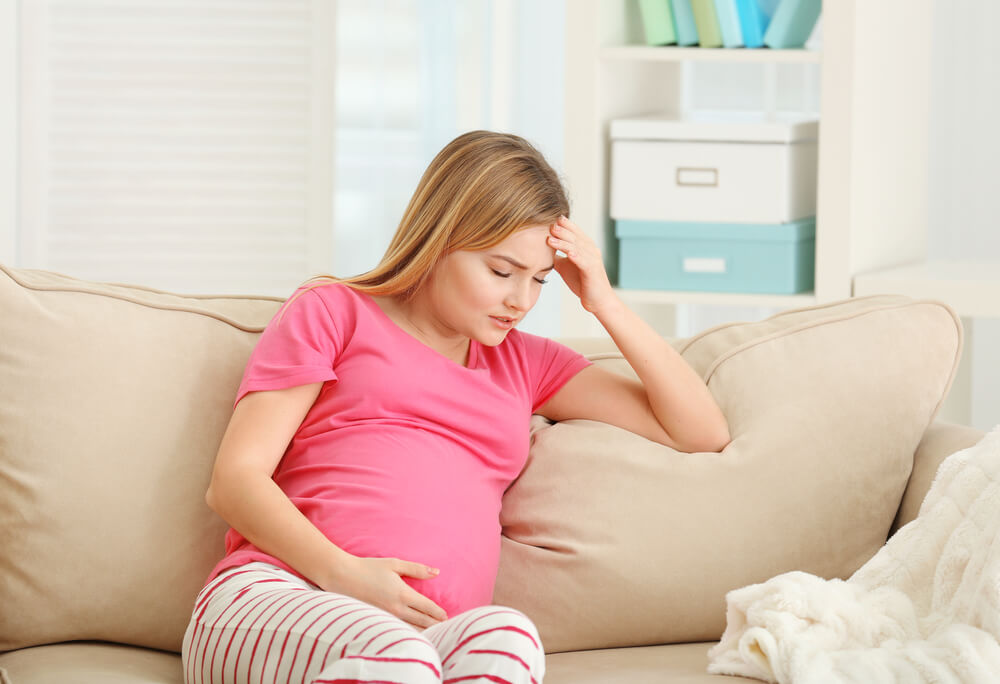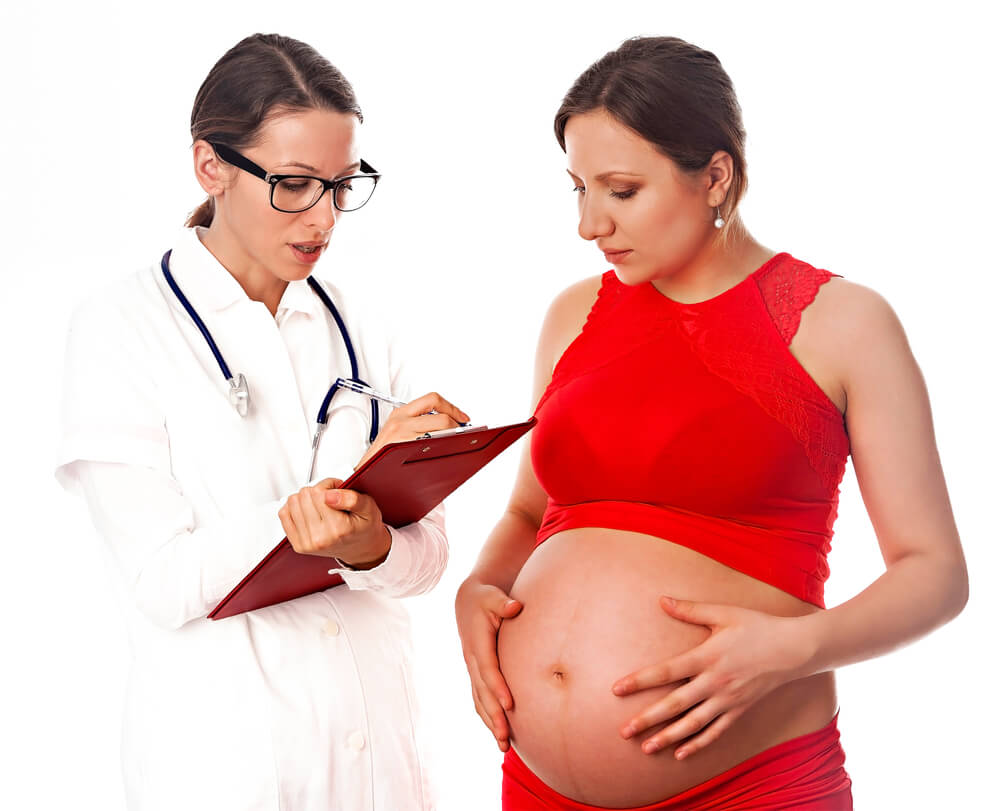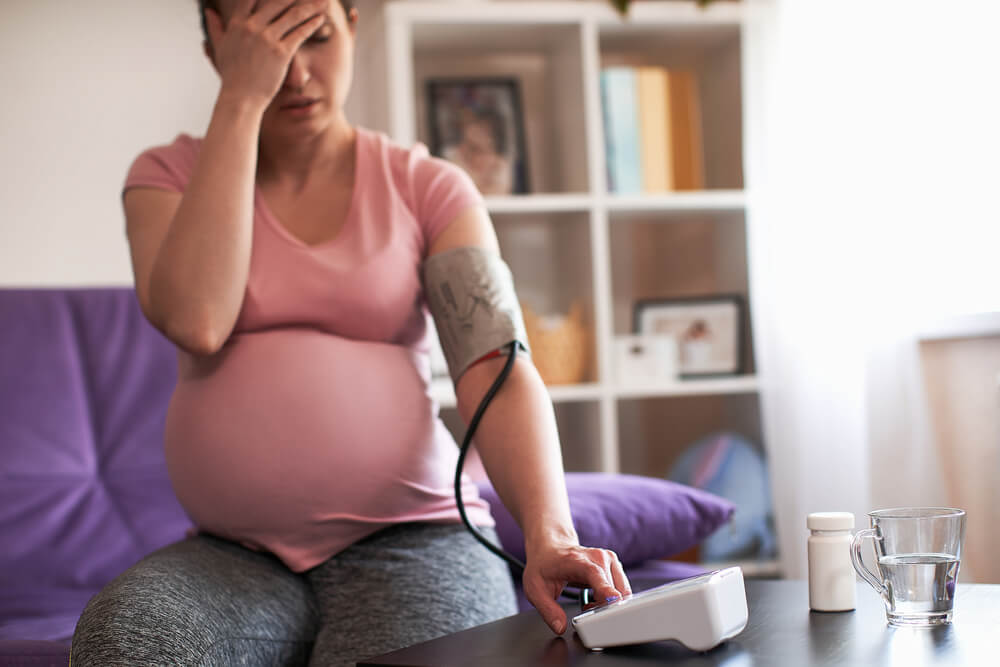High blood pressure is not to be taken lightly, especially during pregnancy. And the concern only gets bigger if you already suffer from chronic hypertension. Essentially, chronic hypertension means that you already suffer from high blood pressure even before pregnancy and possibly even take medication for it. This particular condition also refers to the high blood pressure that occurs in pregnancy before 20 weeks is up or continues to persist for more than 12 weeks postpartum.
Keep in mind that experiencing high blood pressure during pregnancy could also point to the condition called preeclampsia. Preeclampsia and high blood pressure have their similarities but are essentially different issues. That said, suffering from high blood pressure doesn’t mean you shouldn’t get pregnant. The condition can also be effectively treated if it happens during pregnancy for the first time.
Is Healthy Pregnancy Possible with High Blood Pressure?
If you’re aware of your high blood pressure, and especially if you’re suffering from chronic hypertension, you should plan your pregnancy and talk to your doctor before getting pregnant. Of course, it’s not too late to ask your doctor what the best course of action is even if you get pregnant without prior planning.
In case you’re taking medication for maintaining your blood pressure, your doctor will address the types of meds that you use and their safety for the baby. It’s true that some hypertension meds are not good for a growing fetus but that doesn’t mean all of them are bad.
Unfortunately, it’s not uncommon for chronic hypertension to get worse during pregnancy. And if you develop preeclampsia on top of it, you’d be at serious risk of health issues such as poor vision, kidney/liver problems, stroke and seizures, and even congestive heart failure. High diastolic pressure (the bottom number of your blood pressure) can put a strain on your heart and has to be treated immediately.
Will I Develop Preeclampsia?
Preeclampsia is a high blood pressure that occurs only in pregnancy. In that respect, you don’t have to suffer from chronic hypertension in order to develop it, but, at the same time, you’re not completely safe from it even if you control your chronic hypertension with adequate medication. This pregnancy-induced hypertension can be rather dangerous, especially if it gets severe. If you happen to develop preeclampsia, chances are your doctor will suggest induced or cesarean labor in order to prevent potential complications.
Does High Blood Pressure Mean High-Risk Pregnancy?
Chronic medical problems always point to high-risk pregnancy, high blood pressure included. Basically, women who already suffer from high blood pressure and then get pregnant automatically have their pregnancy classified as a high-risk one.
If this is the case for you, too, you should seek help from a healthcare specialist. A professional obstetrician who works with high-risk pregnancies is an obvious choice. Even if you develop health conditions during pregnancy, an obstetrician can take care of you.
Aside from the obstetrician, you might need to go to the perinatal care center. This is only for the most severe health conditions in order to prevent your baby from getting ill.
Not only do you need to take good care of yourself during pregnancy, but you obviously have to think about your child. High blood pressure can pose a risk to your baby as well. Of course, just because you suffer from chronic hypertension doesn’t mean your baby will have any health issues. But, if you disregard proper care, there are several concerns you should be aware of:
- Growth impairment
- Respiratory difficulties
- Placental abruption
- Drug side effects
Managing High Blood Pressure During Pregnancy
Sadly, chronic hypertension doesn’t have a known cure. So, if you suffer from this condition, you can only maintain it based on your baseline blood pressure. Still, this doesn’t have to be the end of the world, especially with the advancements in the medical world and different self-care options you have at your disposal. That said, the following practices can make a world of difference and contribute to your healthier self and healthy pregnancy:
- Eat a balanced diet with a limited sodium intake
- Use your blood pressure meds the way your doctor told you to
- Have regular prenatal appointments
- Engage in regular but light exercises unless you’re on a bed rest
- Completely quit smoking, drinking alcohol, or taking illicit drugs
- Keep track of your weight so you don’t gain too much

What Causes Low Blood Pressure During Pregnancy?
On the opposite end of the spectrum, it’s also possible to experience low blood pressure during pregnancy. Due to expanded circulation and dilated blood vessels caused by hormonal changes, some women have their blood pressure drop when pregnant. This drop usually manifests at the beginning of the pregnancy and reaches its lowest point in the middle of the second trimester. Common low blood pressure symptoms include dizziness and fainting. These symptoms can get very severe when you make a sudden movement such as standing up quickly.
Fortunately, pregnancy-induced hypotension doesn’t tend to be very severe. In general, the systolic pressure (the top number of your BP) drops by 5-10 mmHg, while the diastolic pressure can drop up to 15 mmHg in a normal pregnancy. When low blood pressure in pregnancy is concerned, it usually returns to normal postpartum, especially if you didn’t suffer from the issue before you got pregnant.
Managing Low Blood Pressure During Pregnancy
Most doctors won’t prescribe a medication to treat pregnancy-induced low blood pressure unless it could lead to some serious complications (which is rare in this case). What’s more, chances are your blood pressure will rise once you enter your third trimester. On the other hand, you can practice adequate self-care in order to better manage the symptoms of low blood pressure yourself:
- Never get up too quickly when you’re sitting or lying down
- Avoid standing for too long
- Instead of large meals, opt for several smaller meals during the day
- You shouldn’t take very hot showers/baths
- Up your water intake
- Choose looser clothes to feel more comfortable
- Take your prenatal supplements regularly
Both high and low blood pressure can be viewed as a normal occurrence during pregnancy. However, chronic high blood pressure could pose additional risks during this sensitive period in a woman’s life and even result in preeclampsia. And even though low blood pressure doesn’t seem to be as serious, keep in mind that dizziness and fainting due to blood pressure drop could cause a rather nasty fall, which could also be very dangerous for both you and the baby. This is why it’s crucial to visit your doctor and put trust in renowned professionals that you can feel comfortable with.
Reach out to us at Women’s Care of Bradenton if you’re looking for the top-quality Obstetrics and Gynecology service. It’s our pride and business to make you feel confident, comfortable, healthy, and safe. You can count on a comprehensive female health focus such as obstetrics, gynecology, cosmetic procedures, and women’s health research. We welcome women of all ages and hope to encourage even more ladies to take their health more seriously. This is why it’s so important to us to provide you with the best possible care and exceptional experience when you visit our office.


